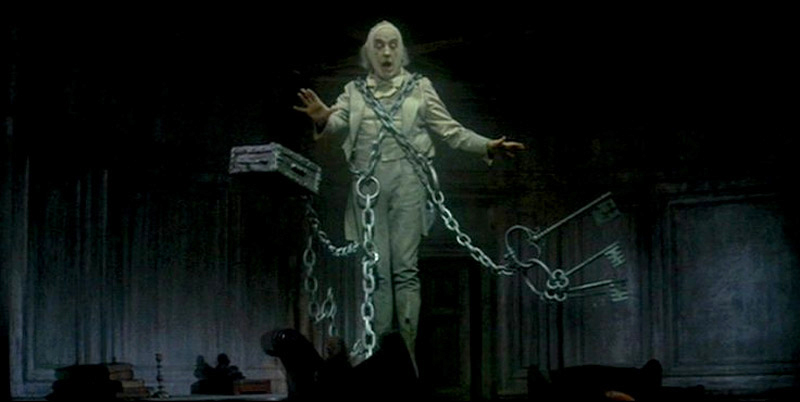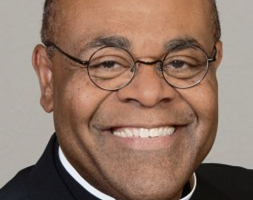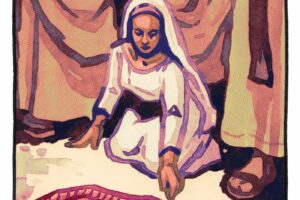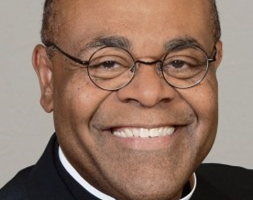
God Rest You Merry
God Rest You Merry
December 3, 2020
“Humbug!” shouts Ebenezer Scrooge at the carolers, and those collecting for charity, and his nephew, and anyone and everyone else crossing his path. Charles Dickens’ A Christmas Carol is the great, great-granddaddy of all the Christmas movies and plays and books that ever were. It exists in any number of movie versions going all the way back to 1901. But in my family, if there was a musical version of anything that was always the best one, so 1970s Scrooge it is. Who can resist a street full of people singing “Thank you very much,” as Scrooge basks in their gratitude, completely clueless that they are thanking him for dying and releasing them from debt, and are literally dancing on his coffin. That Ghost of Christmas Future knew his irony, that’s for sure.
But what is hard to miss throughout is Dickens’ real reason for writing this classic. The carolers Scrooge humbugs are not warmly dressed, happy children going door to door for fun, but scrappy street boys, singing for what few coins they can get. As Scrooge makes his way down the street calling in debts from merchants just scraping by, we see wealthy shoppers buying fine wines and extravagant gifts, while others make do with hot broth or brown paper-wrapped gifts that go three for a penny.
And, of course, no production can leave out Scrooge’s dismissal of those collecting for the poor with delight at how the poor are cared for, with prisons and workhouses. And if the poor would rather die than go there, “they had better do it, and decrease the surplus population.” (Of course, when Dickens visited Louisville the year before writing A Christmas Carol we also had a workhouse. It moved to its final site in the 1850s at the corner of Lexington Road and Payne at what is now Breslin Park.)
When the ghosts come, led by Scrooge’s dead-as-a-doornail partner Jacob Marley, they come to show him what that hard view had done, both to him and to the world. In response to Scrooge saying that Marley had always been a good man of business, Marley wraps the chain that he had forged in life around Scrooge’s arm, saying that mankind was their business. In Dickens’ original he says, “Mankind was my business. The common welfare was my business; charity, mercy, forbearance, and benevolence, were, all, my business. The dealings of my trade were but a drop of water in the comprehensive ocean of my business!”
Bit by bit the ghosts show Scrooge what he had made life into and what that had done to others, and what that way of life did to others. They show him that life itself was his business, should have stayed his business, and could again be his business. And, for Dickens, the purpose of that change of heart was to change the world, or at least British society. He said at a charity dinner that he wrote to “strike a hammerblow” for the poor and their children.
A ghost is visiting us this year. And it is showing us great divisions in our own land in a way that we have not looked at them before. None deeper than that between rich and poor. Homeless camps under highways, food bank lines that stretch on for hours on the day the Dow Jones hits its highest mark ever. Who will get a vaccine when it comes, and who will be allowed to be first in line?
Even as a kid, Scrooge made me uncomfortable. Ghosts and poverty, a sick Tiny Tim who may or may not get the care he needs, a great feast for some, for others a goose so small that the question is, according to Bob Cratchit, should the stuffing go in the goose or the goose in the stuffing.
And maybe this year that is both what we need and what we deserve. This harsh year showing us the harsh reality that this season has become, or more likely always was. That’s the only way we can follow Scrooge to the end. For, at the end, Scrooge himself sings “Thank you very much.” For the ghosts and his eyes being opened, and for being shown how to love the living, especially those who need the most. And that “thank you” becomes a generous life. As Dickens writes, “it was always said of him, that he knew how to keep Christmas well, if any man alive possessed the knowledge. May that be truly said of us, and all of us! And so, as Tiny Tim observed, God bless Us, Every One!”
-Fr Lou
PS: If you would like to read Dickens’ account of his 1842 visit to Louisville, click here. He doesn’t talk about the workhouse but he did meet Jim Porter.
***



